What do I value in a piece of media?
♂21 | INTP 7w6 | Midnight Serpent#5172
(Note: I wrote all this a long ass time ago and don't necessarily still agree with everything but I'm too lazy to change it)
I always judge media solely based on my enjoyment. This can consist of many things, like humor, tension, thrill, and the like, but most of my enjoyment ends up coming from awe, created by something I find truly beautiful. This feeling can be anything from intense chills from something crazy unfolding onscreen to just a simple fascination of a profound idea told through dialogue, but no matter what form it takes it's always the main feeling I look for while consuming any form of storytelling. The best way I can think of to describe what exactly brings me this feeling is by breaking down a story into 3 categories: its ideas that drive the story, its characters that serve as the vessels for these ideas, and the overall execution of those ideas, which is basically everything we end up seeing onscreen or on paper.
Ideas
When judging a story's ideas, I like to think of the question, "How can we be happy?". The closer a story's themes and ideas get to fully answering this question, the more I'll be awed by them. The more you confront this question, the closer you venture out into the ends of the universe and explore the nature of the mind and reality, which I'm all about. This means that my favorite shows tend to be ones that deal with happiness, and the opposite of happiness, on a fundamental, thorough, and deeply existential level.
Characters
Since the universe programmed me to empathize with my own species, I'm impacted most by characters that are emotionally realistic, dynamic, and complex. I want characters to experience a wide range of both positive and negative emotions throughout their story, and I want to see them grow and develop significantly along the way. It's also great to give them hobbies, thoughts, and relationships that further humanize them. And no, I'm not saying I can only empathize with humans; they just have to have some sort of emotional overlap with us. One of my favorite movies literally centers around a garbage collecting robot, but that's largely because this robot oozes raw human personality and emotion.
Execution
When it comes to how it all plays out onscreen, which includes the way the story is told, how characters are externally portrayed, and everything to do with audiovisuals, I tend to gravitate towards things that come closest to matching the word [i]dreamlike[/i]. And yeah, that includes [i]nightmarish[/i]. What I mean by this is basically something that has a heavy atmosphere or feel to it that evokes some sort of emotional response just by existing. Bleh, it's hard to put into words. But I think dreamlike has built up a connotation over the years that sums up what I'm trying to say well enough. While this usually implies highly fantastical stories that defy realism at every given opportunity, this doesn't mean that I only enjoy works that are not grounded in reality; works like Your Name and The Shawshank Redemption do a fantastic job of creating a dreamlike atmosphere over very grounded settings. And while it's easiest for animation to capture this atmosphere, which is the main reason why I gravitate towards it the most as a medium, it's totally doable in live action, manga, and even normal books.
If a piece of storytelling nails these three aspects, I'm bound to love it. And even if it only does well in one, I'll still probably end up liking it. If you have any questions, comments, or criticisms about this, or you want to recommend me things that you feel satisfy these descriptions, I'd be happy to hear them.
Oh, I'm also a sucker for gurren lagann.
PS - I'm a masochist for debate, so if any of you guys ever disagree with my anime opinions/ratings and want to engage in some friendly verbal combat, please do it hehe
Statistics
All Manga Stats Manga Stats
- Total Entries39
- Reread0
- Chapters1,295
- Volumes102

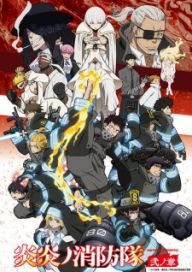
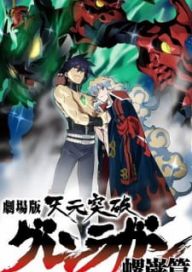

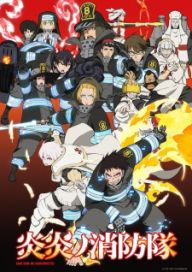
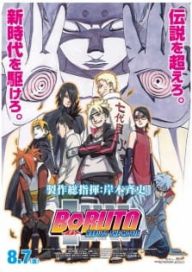



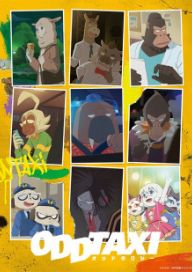
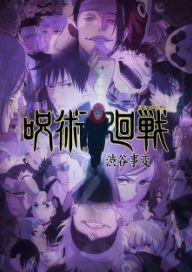
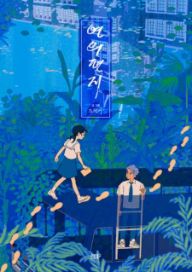
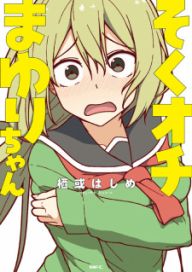
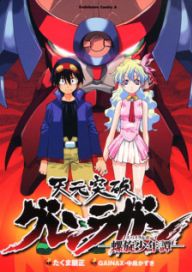





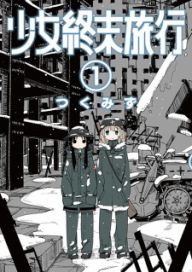

































All Comments (35) Comments
As for the audiovisual atmosphere, I was already highly adverse to the moe character designs. In addition, personally I'm not a fan of heavy symbolism mixed in chaotic imagery. I like surrealism, but only when it's more coherent and aesthetically pleasing, like in Satoshi Kon's films. These are more personal complaints, so I didn't include them in the review and it would be disingenuous for me to give praise. The soundtrack is by Yuki Kajiura and thus it's probably great, but I haven't gotten around to giving it a full listen yet. Perhaps I'll edit the review after I've done so.
I think that utilitarianism as a villain motivation is usually cheap, overused, and only gives the appearance of depth. If you think about it, it's really easy to contrive circumstances so that whatever mean, horrible thing the villain is doing is actually for the greater good through some fictional plot device, like, say, that the suffering of little girls negates the heat death of the universe. Thus, a writer can just throw in utilitarianism for the villain and give the appearance of moral ambiguity by arbitrary writing--- he tries to have his cake and eat it too by having extremely cruel actions by the villain and moral ambiguity as well. All the while, the villain is still undoubtedly villainous and the obvious answer is "there's always another way!" or "the ends don't justify the means!".
One of the best examples of a utilitarian villain done right is Ozymandias from Watchmen, because of the context of his actions. His decision to blow up a city to unite the world did not feel like a writer's plot device and realistically speaking it might have been the only way to stop two world superpowers from having a nuclear war. This is not the same thing as suffering of little girls gives off energy that negates the heat death of the universe. It got to the point where the heroes decided not to reveal the truth because they might as well reap the benefits of his actions.
A bad example is Thano's 50% thing, which is so clearly and obviously evil, and the means are clearly too extreme to achieve the ends and thus offers none of the moral ambiguity of Ozymandias. Plus, if you had the power of the inifinity gauntlet you could've done so much more good than just killing a bunch of people.
Having read 13 pages of reviews on the show, I don't recall finding anyone who said that they didn't want to watch a show about teenage girls or that it's predictable. Most of the negative reviews harped on the pacing, characters, and shock value, but some of them failed to be more articulate in how these things affected the show, so I just tried to reconcile both sides and show how people can look at it both ways without it being contradictory.
I never argued that it was Kyubey controlling their fates. I just argued that laws of karmic destiny did exist, because you said the show doesn't force karma and fate into existence. Again, from all the dialogue, contrivances, and the fact that Madoka had to literally catch a loophole in the laws of destiny point to the fact that they're laws not patterns--- as you said, "conservation system of reality" like conservation of matter and energy. That's clearly a law, and it's clearly a law of fate--- if you try to distort reality for something positive, you will suffer a bad fate. If they were simply patterns, Kyubey wouldn't have the 100% success rate across all of history, would he? If it was simply a pattern, you wouldn't need Kyubey to intervene at all because then theoretically you can just decide not to fall into despair. You say they're strong cause and effect correlations, but then you say Kyubei taps into laws. Laws are not just correlations. But whatever, if you maintain that the laws are just patterns, then I can't really convince you otherwise and by that point we both agree that there shouldn't be laws. That's the whole point I wanted to make.
I understand that Kyubei is just using the laws to his advantage--- the girls giving off heat as they become witches is like using water to absorb heat from our skin through evaporation. But Kyubei's involvement really makes little difference. The point seems to be that wishing for something good out of nowhere leads to inevitable disaster, and we've agreed to disagree as to whether or not that's a good thing for the story and themes of the show. If you compare Kyubey's manipulation of the girls to the government forcing people to do something and say that the entirety of that situation is the tragedy that comes naturally in life, then the answer is simply, there's hope! Don't become a magical girl.
In episode 11, Kyubei says that all of Homura's efforts have only increased the power of Madoka's karmic destiny, which will make her the most powerful witch ever. He says it very matter of fact, indicating that Madoka is definitely going to become a witch.
He explains to Madoka that throughout the ages countless girls have made contracts, had their wishes granted, and then succumbed to despair. "Beginning with a wish, and ending with a curse. It's a cycle every magical girl has repeated up until now... Wishes are things that don't exist in the current reality, and anything that deviates from reality is bound to cause a distortion, so why does it surprise anyone that these things ended in disaster?"
Later talking about Homura: "So you're saying as long as she thinks there's hope, she's doomed?" "That's right, just like it was for all the past magical girls."
Madoka's wish is to erase witches before they're born from the past, present, and future, to which Kyubei responds, "That wish, it unravels the fabric of time itself! It violates the laws of karmic destiny!"
Clearly, the show forces fate and karma into existence in order to promote a "price of power" message. Madoka's wish literally took away the despair from dying magical girls and replaced it with hope, as you can see her going around to each magical girl. This further reinforces how despair just seemed to be imposed on the girls sooner or later regardless of their free will. If the girls could've kept their despair at bay indefinitely such that karmic destiny didn't apply to them, then Madoka wouldn't have needed to sacrifice herself. By all indication, it wasn't simply that the girls were more liable to despair, it was that they were all going to fall into despair eventually. So tragedy is inevitable, but there is hope that tragedy is not inevitable.
In their toned down versions, unaffected by karmic destinies, the situations you described would indeed be very relatable. I mean, I can change my story easily to just say Magical Girl A struggles to get out of poverty, Magical Girl B struggles to get out of the friend zone, and they gradually lose hope because of that. But because the show contrives ways to exaggerate tragedy and force it in no matter what, the audience still resonates with their current situation but they're not relating that hopelessness to their hopelessness in real life, because the hopelessness in the story was ordained by karmic destiny whereas the hopelessness in real life is quite natural, like struggling to get out of poverty. Moreover, this karmic destiny dictates exactly how the girls will react: eventual despair (even in Homura's case). If karmic destiny wasn't there, the girls could easily have gone down a brighter path. Real people don't feel like they're going through hard times just because there's a universal law that imposes negative emotions on them and if only that law was lifted they'd be able to be happy. They feel like there's no universal law and things still suck ass and they still feel sad. The satisfaction of seeing such restrictions lifted on screen does nothing.
Other stories I mentioned like Red Garden, Mushishi, and Berserk also have extreme circumstances and they're even less plausible from a realistic point of view: Red Garden has girls being kidnapped and turned into zombies, Mushishi has mushi coming in and messing with people's lives, and Berserk has demons turning the tide of battle. The difference is that all these circumstances are still more natural because they are akin to something like cancer suddenly popping up; furthermore none of these circumstances ordain a bad outcome or force characters into feeling despair--- maintaining randomness and not disrupting causality. They're relatable in their hopelessness precisely because of the randomness, non-intervention, and neutrality of their worlds. PMMM ordains a bad outcome with its curse (which is blatantly stated several times) and the whole negative emotion in the form of despair thing. Even after Madoka changes the rules of karmic destiny, when Sayaka dies in the new timeline the other magical girls say that this was expected because she would inevitably fall into despair.
Again, I think all this could've been solved if they made the whole karmic destiny thing seem more like a coincidence than a set law that Madoka literally had to rewrite, and all the despair the girls suffered from was a result of their own choices. The ending should've had her become a magical girl to aid Homura, and it's still not enough, but just when they're about to fall into despair per karmic destiny, Madoka says she refuses to do that and they power through, proving that there was no such thing as karmic destiny in the first place and that there's always hope even if it doesn't seem like it. Kyubei's claims of "laws" were simply just observations of patterns and as such you don't need a literal wish to revoke such nonexistent laws. You can actually keep everything else the same, although I would tone down the backstories of Sayaka and Kyouko and/or lengthen them out so that they don't feel so abrupt. Also avoid applying karmic destiny to every female figure with power in history because obviously not all of them suffered from a doomed fate in such a literal manner.
Good point about the teacher and Madoka's mom. I forgot about that.
As for hope in the face of tragedy, I think if you forcefully take out hope in the first place through an arbitrary law and contrived circumstances that rewrite natural causality, then reasserting hope by revoking said law so that the contrived circumstances don't occur has little impact. It's saying "you can change fate" in a very abrupt, heavy handed manner that avoids traversing all the complexities of life for all its good and bad. In fiction and in real life, there are a lot of situations where things seem bleak and a solution is impossible, but none as big as fate itself, because to outright say that fate is set would be to contrive a lot of things to meet that requirement that otherwise wouldn't normally happen and then only showing such rare events, taking the audience out of it. The audience doesn't even resonate with the hopelessness of such a world because it's portrayal is clearly one-sided. The best works that deal with fate and karma are the ones that make it nebulous as to whether or not fate and karma exist. That way, the audience can resonate with how sometimes in life things just seem stacked against you and you wonder if God has it out for you. By contrast, the resolution of such an arbitrary, simplified problem doesn't provide as much emotional catharsis/inspiration as the resolution of the situation I described, where fate is questioned and almost believed. All in all, I think setting up fate and then knocking it down is less powerful than questioning fate and ultimately concluding that people do have power over themselves after all. In addition, the situation I described can still make way for the same twists and turns--- the girls don't have to immediately know that their enemies are their former allies.
But hey, if it works for you and a lot of other people, great. Maybe one day I'll fall into despair and find that the show helps me out of the pit.
Still, I think there's some power to this way of looking at things if you look at it as saying that tragedy will occur if you just let things play out--- like say, if you don't get control of your emotions. If you don't be careful when transporting glass, it's going to break because entropy is the natural outcome.
However, as a statement that tragedy is inevitable in real life, this fails because the tragedy in the show is too contrived for people to be able to use this to come to terms with tragedy in their lives. People are not going to watch the show and think, I need to prepare myself for the inevitable tragedy in my life; they're going to walk out thinking that thank God my life isn't dictated the Second Law of Thermodynamics. They're not going to get hope from Madoka, because 1)they know there's no such curse to lift in the first place so they've always had hope that not all things are going to be bad 2)if there was such a curse and their lives did always spiral into tragedy, they don't have the power to literally change the laws of the universe.
I think the story would work better in terms of tragedy and hope if it goes like this: We follow the a bunch initially hopeful magical girls as they fight a never-ending onslaught of witches. Casualties amount, and some girls fall into despair because of it, turning into witches themselves. It seems hopeless, and it's suggested that perhaps this is following the pattern of the universe's continual loss of heat. But there's no mention of a curse or that magical girls are cursed to become witches. Madoka is the only one that doesn't give up hope even as her comrades do, and her last second sacrifice defeats the evil forces and shows hope to her comrades that prevents them from falling into despair. Her comrades grow to accept that the deaths were a natural outcome of the combat but a grim outcome was not inevitable. While they mourn the deaths, they also try to continue fighting. Fate isn't set to a constant descent towards chaos even though it seemed that way, but rather it's something they could change, no matter how hard. Kind of cheesy and cliche, but wouldn't this be much better at saying that tragedy happens a lot, you can't save everyone, but that doesn't mean all hope is lost?
I only belabored the point about entropy because your original analysis was that the show was about order vs chaos and how the universe descending into entropy was like our minds descending into entropy. I personally don't think there's enough textual evidence within the original series to support this, but I'll take your word for it if you say the movies expand on this theme.
Having also seen Pyscho Pass and Fate/Zero, I've discerned that Gen Urobuchi has an extremely cynical worldview and thus his works portray the world as being comprised mostly of misery. He dedicates himself to deconstructing idealism at every opportunity. But with any good thematic discussion or message, you want to avoid making generalizations that simplify the discussion and show both sides of the matter on more or less equal footing. While not outright making such a statement, having a world where all idealism/good intentions backfires is to skew reality to fit your message. By contrast, you can still have a magical girl show with wishes and all, but you can have some magical girls living happily and others being miserable.
Right, but that doesn't mean the mind descends towards chaos/entropy. It doesn't mean we gradually get more chaotic as time goes on, even if the entropy of the universe always increases.
Well that's all reasonable about Kyouko but that also lessens the impact of her heel face turn to sacrifice herself for others when there's such a clear logical dissonance for the viewer.
"And what I take away from that is that tragedy won't follow happiness every single time like it did for the magical girls, but that it's always possible for tragedy to appear even when most unexpected."
Again, that's what you take away but that doesn't erase mistakes in the actual story. I understand that for certain stories I like them enough that I'm willing to overlook their flaws in execution in order to arrive at what I think they're getting at. Unfortunately, I have it out for this particular flaw because I especially dislike it when I see the author's hand forcing a message. Perhaps it's just a pet peeve of mine. Yes, the show obviously doesn't have such a big logical disconnect as that skit but what it is guilty of is being one-sided. It's like when a propaganda movie only shows one government being benevolent while not showing the rebel side. Is it reasonable that such a government could exist? Yes. Do you learn that such an effective, good-willed government could exist in real life just like tragedy can exist in real life? Yes. Is it necessarily trying to teach you that all governments of this type are like this? No, but it's still one-sided and gives that impression, similar to showing tragedy happening every time. In addition, the fact that nearly all of the examples of the tragedy are brought about by fictional paradigm shifts doesn't help. It's basically using cherry-picked anecdotal examples. For a good example of showing how bittersweet life is and how tragedy can happen any time, see Mushishi, which has a healthy balance of good and bad endings and uses extreme circumstances with much more subtlety. Or Kino's Journey. Or Berserk, which talks a lot about fate and tragedy but in a way that makes you question throughout its 26 episode run whether or not man can actually overcome great tragedy and doomed fates as we follow various characters trying to do that and who don't automatically kick the bucket for it. It also provides a very reasonable medieval context for this problem where random deaths and tragedy are normal and not exaggerated at all.
However, as I said, because this show portrays all wishes as inevitably backfiring or leading to bad things happening using extreme cases, the one case where it didn't happen just feels like the author letting this one slide so he can carefully time the, "not all hope is lost" message. If the rest of the girls' bad fates hadn't been so contrived, this would've worked. Of course, if Gen had bothered to even portray 1 girl who didn't suffer a bad fate, which could reasonably happen, the hope message wouldn't have much impact, so of course he had to make a one-sided portrayal.
Look, I think we can agree to disagree on this point because it's really all benefit of the doubt. You love the show, and I think you've justified that love enough. In a way, I'm kind of nitpicking at the exact logic of the execution but I can definitely see where one might find uplifting power in this story if they don't look at it with a magnifying glass.
The bit about the universe's entropy mirroring the entropy of the mind is not based on any line I've seen from the show. Maybe you know it from the movie. Also, again, just because the mind is complex doesn't mean it goes crazy. Even if it's unpredictable, that's only because we can't predict it now. If I learn more about myself, I can predict myself more and more. Entropy means a state of disorder. By contrast, the mind does things precisely because it is in a state of order that follows precisely outlined thought processes, even if those processes are subconscious. For the mind to be entropic would be for people to do things with no rhyme or reason that's not founded upon prior experiences, knowledge, and personality traits. The human psyche is complex but it's not impossible. Once you start doing self discovery you realize that all those irrational things you do are actually quite rational. The same goes for other people. If you're sensitive and experienced enough, you can "read" people in a way and predict some of the things they do that they themselves don't know they do.
If we're talking about alignments, a "chaotic" alignment simply means a character won't follow the law in favor of doing what he wants to do. Even so, what he wants to do is in accordance with his own internal law.
Ok, that's interesting about the cultures thing. From the few Japanese live action movies I've seen, I didn't get the impression that the girls there acted like this.
EDIT: Really sorry about changing my post so many times. I'm trying to iron out logical fallacies and make myself clearer to understand.
I think that the root of the matter is a difference in personal aesthetic. You seem to be attracted to big picture things like fate, universal laws, man's place in the universe, and unknown forces controlling things that may serve a greater purpose. I don't believe nor like the idea of fate and inevitability, that there's arbitrary tragedy in life, and I don't care that humanity may ultimately be nothing but a speck in the universe.
"I wouldn't say so, since our world thankfully doesn't seem to be dictated by creepy supernatural wish-granting forces. Instead, I interpret it more as the show telling us that we should expect both tragedy and positivity throughout our lives, even when things seem to be completely in control."
Yes, I get that that's the point, but the way it conveys this point is key. Sayaka's misery was mostly her own doing, so in a natural state of affairs while she still has to fight monsters, this doesn't come off as the negative balancing the positive. But the story argues that her misery was the result of some universal law mandating balance. Then that's just a heavy handed attempt to say that negativity always balances out positivity in an extreme way without devising a more elegant, natural way to do so. This just makes the message corny. Let's take the story of the boy who cried wolf. The boy got eaten by wolves because the direct consequence of his lying was that he lost credibility. Children hearing this story understand very well why they shouldn't lie. On the other hand, if the story was reworked so that the boy lied and then one day a wolf snuck into his bedroom and killed him before he said anything, yes that makes the same statement that lying is bad but its illustrative power is gone. That's the same thing as using an arbitrary idea of positive things being balanced out by negative things on some universal scale to illustrate the dualities of life, instead of just letting life situations speak for themselves.
I had anticipated that you would argue that Kyouko's father would have killed her family anyway. Here's the thing: Kyouko's wish was bound to end up in disaster because anyone can clearly see that mindcontrolling people to do what you want is only going to shatter you later on because you realize they weren't doing it of their own free will. If Kyouko wished for financial security, then her dad may or may not have tried to kill her for being a magical girl. But in this situation you don't get the benefit of the doubt for her dad suddenly becoming a murderer because he's not put in a situation where his entire faith collapses. The tragedy wouldn't occur because Kyouko wished for someone else; it occurs because the author wanted him to overreact to make a point. Either way, it's strawman reasoning to say wishing for someone else is bad, or any worse than wishing for yourself. In fact, the whole reasoning of, something bad would've happened anyway, is emblematic of the fatalistic and heavy handed nature of the writing.
This Key and Peele skit illustrates how using extreme, forced means to convey a point doesn't actually help convey the point and it actually mirrors the logical leaps that the writer must make in order to have "consequences" happen, like saying you became envious and hateful because the universe wanted to balance out your good deeds. Fantasy is always going to use exaggeration to intensify emotions and themes, but the exact places that you exaggerate must be chosen carefully.
https://www.youtube.com/watch?v=Be9IfJxHyDY
EDIT: Returning to the unpredictability being related to the universe, the unpredictability of human emotions is not spurred by the universe and it has more to do with unconscious human thoughts and thought processes. We've already established that it's not the universe that's making Zuko or Sayaka want something they otherwise wouldn't have, but just that characters are going to be moodier. The universe has nothing to do with making the characters more unpredictable or complex than they already were.
About realism in the girls, I totally agree that the girls reacted in realistically flawed ways and displayed fears, insecurities, and wants that teenage girls would experience in their situation. All that is separate from their personalities, or what I like to call, texture. Texture is the unique feel to a person- those indescribable traits, like the way they phrase their sentences, their body language, their personal catchphrases, their intonations, their sense of humor, the way they approach mundane scenarios, etc. In that respect these moe girls feel plasticky to me because their personalities are archetypal and I can't stand the cutesy-ness that would never happen in real life unless people are intentionally mimicking anime girls.